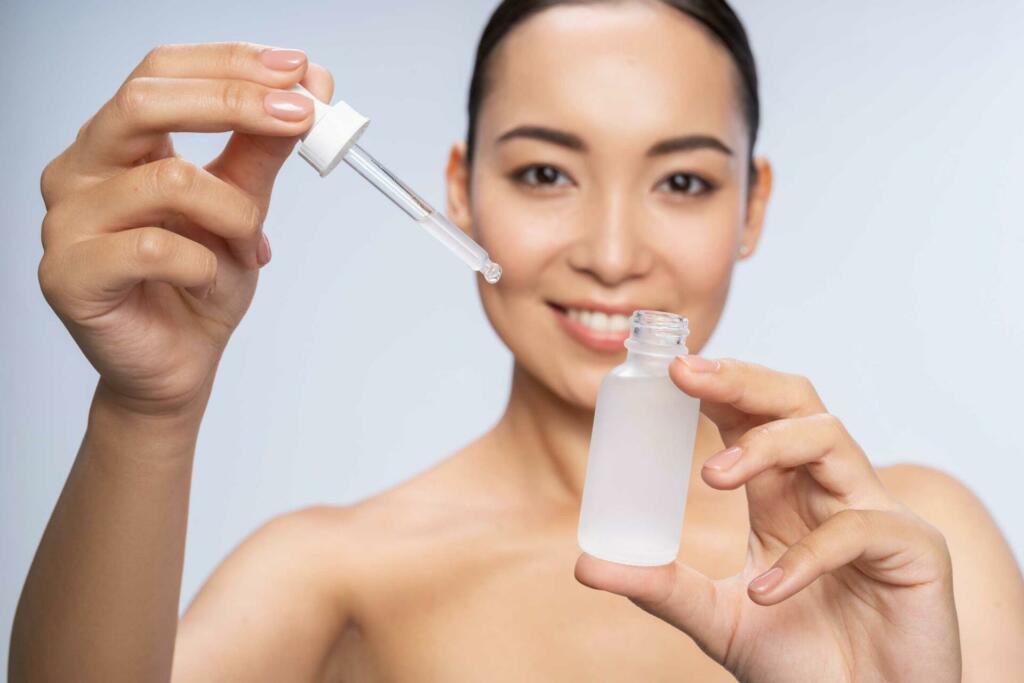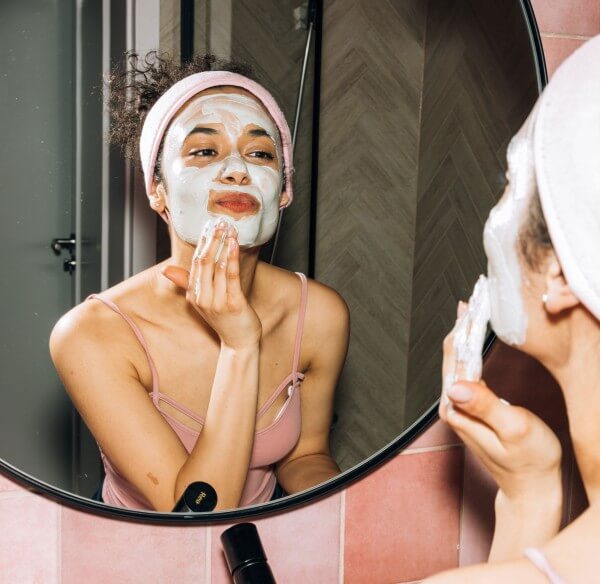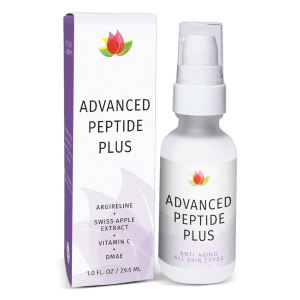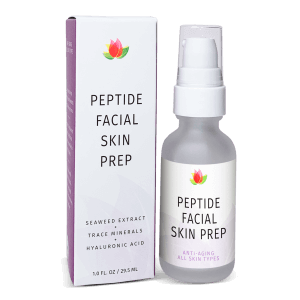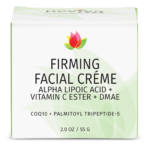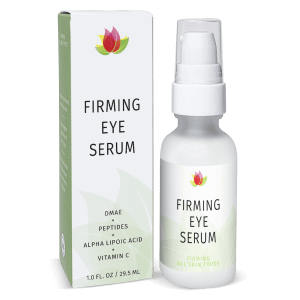Ingredients, Reviva Labs, Skin Care
The Power of Peptides in Skincare: What You Need to Know
When it comes to skincare, peptides are the unsung heroes that are quietly working behind the scenes to improve your skin. Often overshadowed by the flashier ingredients like retinoids and hyaluronic acid, peptides are also working hard to improve the appearance of skin. These small but mighty molecules really help to elevate your skincare routine to the next level.
Let’s break down what makes peptides so special and why they deserve a spot in your skincare arsenal.
What Exactly Are Peptides?
Peptides are short chains of amino acids, which are essentially the building blocks of proteins. Proteins, in turn, are vital for many functions in the body, including maintaining skin structure and function. Collagen and elastin, the proteins responsible for keeping our skin firm and bouncy, rely on peptides to function effectively.
As we age, collagen and elastin production naturally declines, leading to sagging, wrinkles, and an overall loss of firmness. This is where peptides come in—they signal the skin to produce more collagen, making them a powerful anti-aging tool. Think of peptides as messengers that remind your skin it still has a job to do staying firm, smooth, and radiant.
How Do Peptides Work?
It’s one thing to know peptides are good for your skin, but what’s happening on a deeper level? When applied topically, peptides penetrate the skin barrier and send a signal to your cells, telling them to produce more collagen and elastin.
But peptides don’t just stop at boosting collagen. Some peptides also work to improve the skin barrier, which is crucial for maintaining hydration and protecting your skin from environmental damage. Others target pigmentation and can even reduce inflammation. In short, peptides are multi-taskers, and who doesn’t love a product that can do it all?
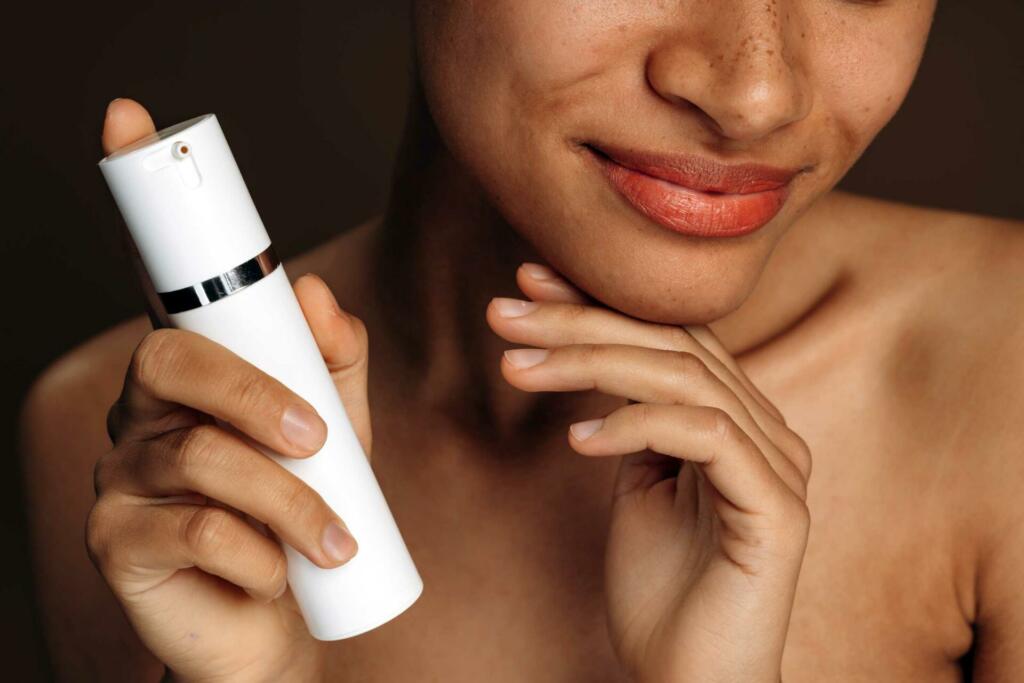
The Top Anti-Aging Peptides
There are several types of peptides commonly used in skincare, each offering unique benefits. Let’s take a closer look at the heavy hitters:
Palmitoyl Pentapeptide-4 (Matrixyl)
Matrixyl is a name that pops up in many anti-aging creams for a reason. It’s a peptide known for its ability to boost collagen production, reduce wrinkles, and improve skin texture. The key benefit of Matrixyl is that it tells your skin to rebuild itself from the inside out. It’s one of the most researched peptides, and if you’re serious about tackling wrinkles, this is a name worth knowing.
Copper Peptides
Copper peptides, or copper tripeptide-1, are another powerful weapon in the fight against aging. These peptides are not only anti-inflammatory but also help with wound healing and repair. What’s particularly interesting about copper peptides is their dual action—they promote collagen and elastin production while also acting as antioxidants to protect against environmental damage. Talk about multitasking!
Acetyl Hexapeptide-8 (Argireline)
Sometimes referred to as the “botox in a bottle,” Argireline is a peptide that works by relaxing facial muscles, reducing the appearance of fine lines caused by repetitive expressions like smiling or frowning. This peptide doesn’t freeze your face like botox, but it does help smooth out those expression lines over time. It’s particularly useful for areas around the eyes and forehead, where dynamic wrinkles—those formed by facial movements—tend to show up first.
Palmitoyl Tripeptide-1 and Palmitoyl Tetrapeptide-7 (Syn-Coll)
These peptides work in harmony to boost collagen production and repair damaged skin. Together, they help to restore elasticity and firmness while reducing inflammation. Syn-Coll is often found in products aimed at targeting fine lines, sagging, and loss of firmness. The results? Noticeably smoother, more youthful skin over time.
How to Incorporate Peptides into Your Routine
The beauty of peptides is their versatility. They can be found in a variety of products, from serums and moisturizers to eye creams and masks. To get the most out of peptides, look for products with high concentrations of active peptides, ideally paired with complementary ingredients like hyaluronic acid or niacinamide, which help hydrate and calm the skin.
Consistency is key when it comes to peptides. While they may not give you overnight results, with regular use—typically after four to twelve weeks—you’ll notice your skin looking smoother, firmer, and more hydrated. For best results, apply peptide-rich products after cleansing and toning but before heavier creams and oils.
Why Peptides Are a Must-Have for Aging Skin
It’s tempting to think that aging skin needs a one-size-fits-all solution, but peptides offer a more tailored approach. They work by addressing specific concerns, whether that’s fine lines, loss of elasticity, or even uneven skin tone. And because they mimic natural skin processes, they’re less likely to cause irritation compared to more aggressive anti-aging ingredients like retinoids or acids.
Another benefit? Peptides can be used alongside other active ingredients without the risk of irritation. Want to mix your favorite vitamin C serum with a peptide moisturizer? Go for it! The synergy between these ingredients can help you achieve that coveted youthful glow without compromising skin health.
Are Peptides Right for You?
Whether you’re just starting to notice the first signs of aging or you’re looking for a solution to keep your skin firm and radiant, peptides are a smart choice. Their ability to mimic the body’s natural processes and deliver targeted results make them a standout ingredient in any skincare routine. Plus, with so many types of peptides available, there’s a solution for every skin type and concern.
If you’re ready to give your skin the care it deserves, start by incorporating a peptide-based product into your regimen. You may not see changes overnight, but give it time, and you’ll love the results! After all, when it comes to skincare, sometimes the smallest ingredients make the biggest impact.



